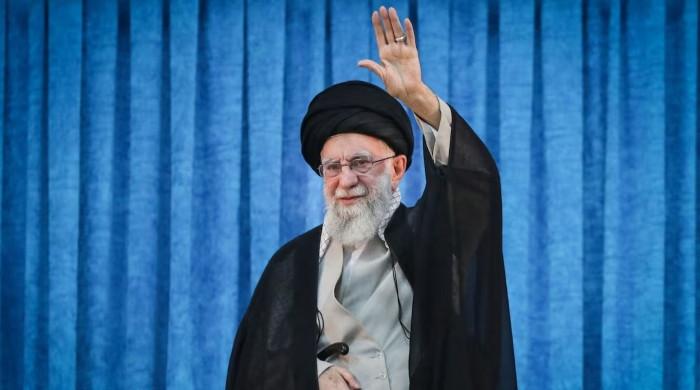Tehran: Iran’s top leader Ayatollah Ali Khamenei said on Wednesday that a US proposal for a nuclear agreement was against national interest, in the midst of sharp differences over whether Tehran can continue to enrich uranium.
The long -standing enemies have held five rounds of negotiations since April to knock out a new agreement to replace the agreement with great powers, which US President Donald Trump gave up during his first period in 2018.
On Saturday, Iran said it had received “elements” of the American proposal through Omani brokers whose details have not been published.
“The (nuclear) proposal that the Americans present is 100% against,” The ideals of the Islamic Revolution in 1979, Khamenei said in a television speech.
“Independence does not mean to wait for the green light from America and like America.”
Iran’s enrichment of uranium has emerged as an important point.
Trump said Monday that his administration would not allow “any” enrichment, despite Tehran’s insistence on it being its right according to the nuclear non-spreading treaty.
Khamenei said that enrichment is “key” for Iran’s nuclear program and that the United States “cannot say” about the question.
“If we have 100 nuclear power plants but do not have enrichment, they will not be of benefit to us,” because “nuclear power plants need fuel” to operate, he said.
“If we cannot produce this fuel domestic, we need to reach the United States, which may have dozens of relationships.”
‘Less than satisfactory’
On Monday, Iran’s leading dealer, Foreign Minister Abbas Araghchi, held conversations in Cairo with Rafael Grossi, head of the UN Nuclear Watchdog, International Atomic Energy Agency.
In its latest quarterly report last week, IAEA said Iran had further increased its production of heavily enriched uranium.
In a separate report, it also criticized “less than satisfactory” collaboration from Tehran, especially to explain earlier cases of nuclear material found in non -declared places.
Iran is currently enriching uranium to 60%, well above the 3.67% limit set in the 2015 agreement, but still shortly after the 90% limit needed for a nuclear war head.
The reports came in front of a scheduled IAEA board meeting in Vienna later this month, which will review Iran’s nuclear activities.
Washington and other Western governments have continued to accused Iran of sought a nuclear weapons capacity. Iran insists that its program is for peaceful purposes only.
The 2015 agreement gave Iran relief from international sanctions in return for non-monitoring restrictions on its nuclear activities.
Trump reintroduced US sanctions when he ended the agreement in 2018 and has since tightened them with secondary penalties against third parties that violate them.
Britain, France and Germany, the three European countries, which were a party to the 2015 agreement, are currently weighing whether to trigger the sanctions “Snapback” mechanism in Accord.
The mechanism would reintroduce UN sanctions in response to Iranian failure to comply a possibility that expires in October.
Iran has slammed the IAEA report as unbalanced and said it depended on “forged documents” provided by his Arch Fo Israel.



